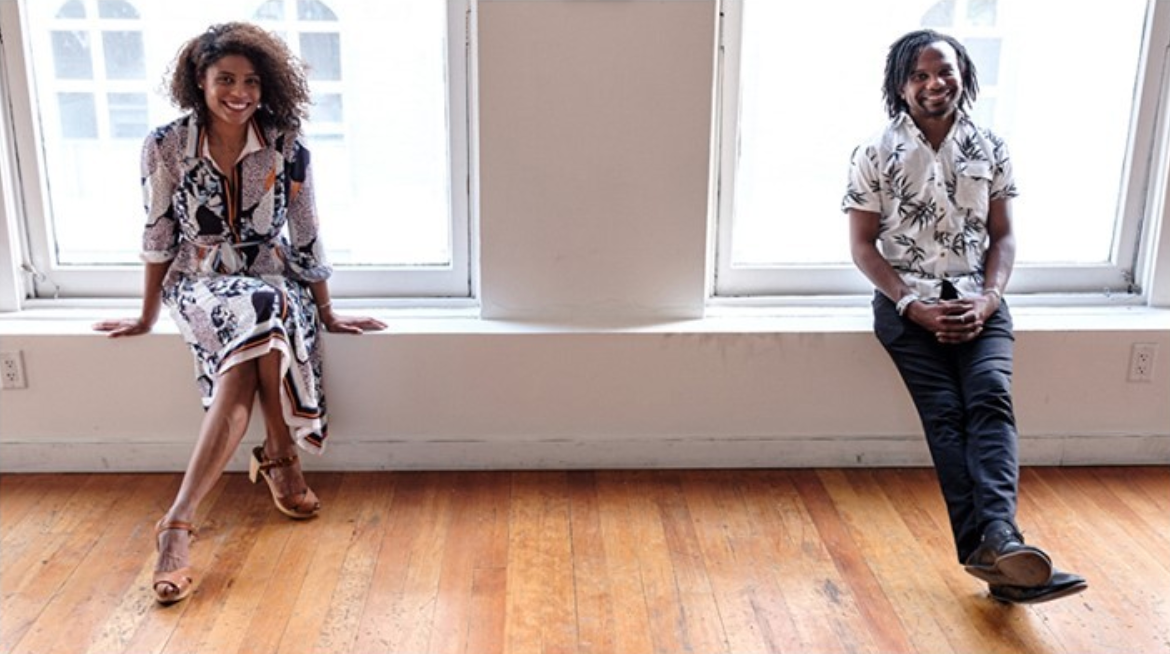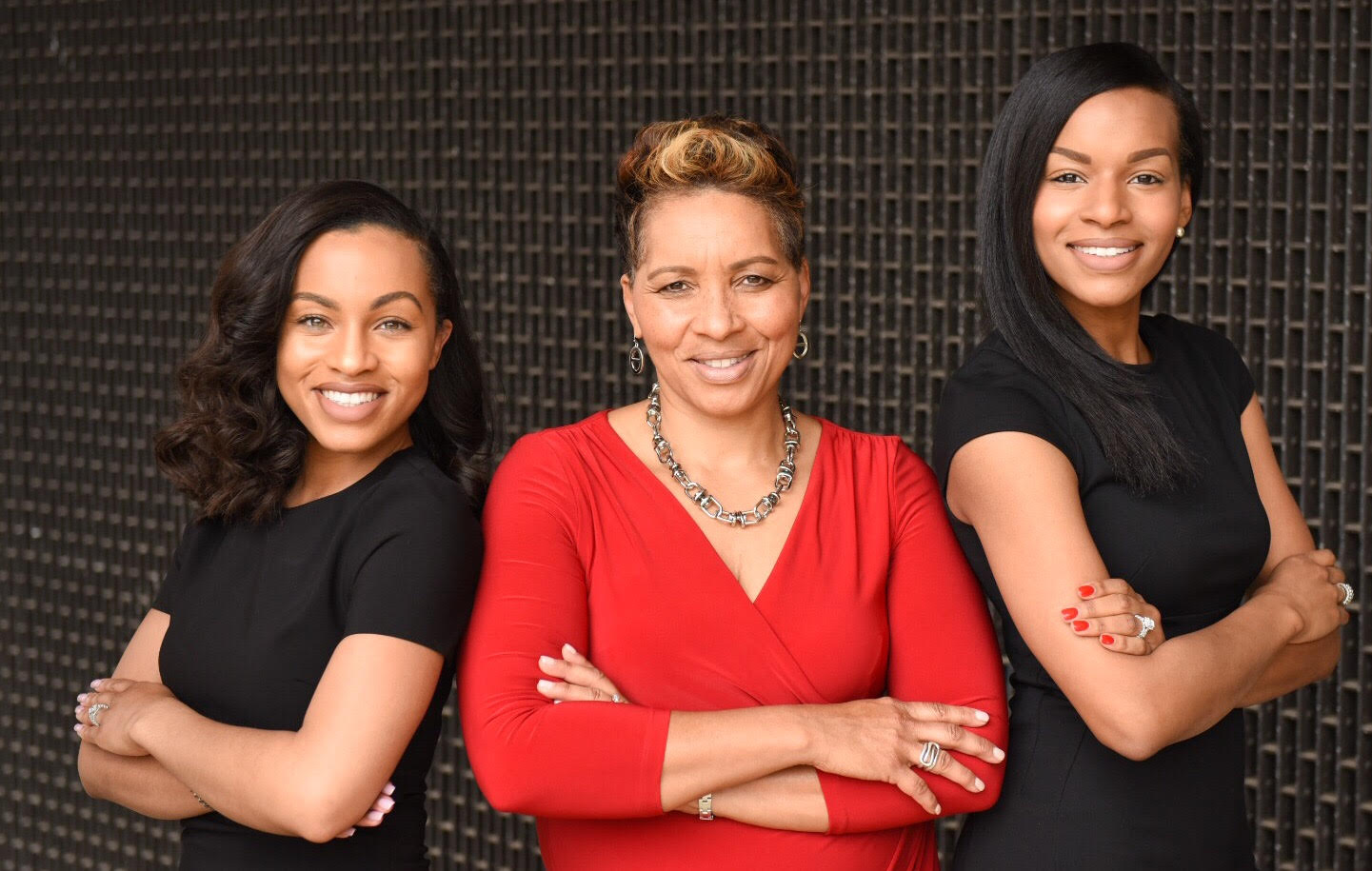Oakland Entrepreneurs Launch $1 Billion Investment Fund For Black Businesses Impacted by COVID

The deaths of several unarmed Black civilians at the hands of law enforcement officials have spurred protests around the country in the midst of the coronavirus pandemic. Because of this, numerous businesses have been pushed to the brink of extinction or been forced to close.
Two entrepreneurs, Elisse Douglass and Trevor Parham, decided to help local businesses during the pandemic. Their Oakland Black Business Fund was established in June to aid Black-owned businesses in the Bay Area. In addition to the relief efforts, the duo has created a $1 billion investment fund to help Black entrepreneurs nationwide survive the economic fallout from the pandemic.
The fund started after Douglass decided to create a community-oriented crowdfunding site for businesses affected by the Black Lives Matter protests.
“That took off and we brought in $100,000 in less than a week and a half,” Parham said in an interview with Crunchbase.
“We felt that with the influx of capital and coverage, we had more money than we initially set out to deploy,” he added. “We immediately realized that there was more we could do. We knew the overall approach could be a bigger impact with much bigger dollars.”
Parham said he hopes the fund will fill the void between Black entrepreneurs and mainstream funds who often shut them out.
“There is a disconnect between mainstream capital markets and the value of Black businesses, especially if they are not doing a tech product that falls within the mainstream of other tech products,” he explained. “What I have seen is that there are two factors: bias and racism, and that is valid, but another part is interest and intention. Investors might not truly know how to find them or plug-in in a way that is financially sound or feel like they are steering too much.
“We are aware of the conversation around Black Lives Matter and racial injustice and we are doing something that takes a business approach to addressing some of the larger societal concerns people have,” he said. “Economics is not the only answer, but by investing in Black businesses, we are creating a response to overcome a lot of the challenges.”
Published at Thu, 03 Sep 2020 13:45:41 +0000
Mother-Daughter Trio Open Up About Their Franchise Empire in Maryland

Toya Evans and her two daughters, Lauren Williamson and Chanel Grant, are becoming franchise powerhouses in Prince George’s County, Maryland.
In 2015, they decided to invest in themselves and start a family business. Due to their love of health and wellness, they chose to purchase their first Tropical Smoothie Café franchise. While operating and opening additional locations, they felt it was the right time to diversify the brands in their portfolio. In October, Evans, Williamson, and Grant are set to open Hand and Stone Massage and Facial Spa in Brandywine, the first in Prince George’s County.
BLACK ENTERPRISE spoke to Lauren and Chanel about their growing empire.
Black Enterprise: This is only the second time I’ve profiled a mother-daughter trio on their success in franchising, so it’s a pleasure to see more African American mothers and daughters building empires together. How did your journey start?
Chanel Grant: We grew up watching our parents be entrepreneurs, so it came naturally. Initially, we considered starting our own juice bar, but because we were all working full time in corporate jobs (and still are!) we knew franchising would be a better option. Franchises generally have a faster ramp-up time with already established brand recognition. We also knew that we wanted to own multi-units in the health and wellness space, so we created Healthy Living Ventures, LLC, and started looking at various brands. Tropical Smoothie Café checked all of our boxes on what we wanted to offer to the community.
Lauren Williamson: (laughing) We went in very aggressive with the plan to open 10+ units. After learning more, we slowed that down. It took us a few years to open our second location. What’s great though is that once you get that first store done, things do get easier. We do plan to continue adding Tropical Smoothie Café locations but are focusing on non-traditional locations such as military bases and airports.
The Next Chapter
Black Enterprise: How did you decide to venture next into spa services?
Grant: We really liked the Hand and Stone brand and lifestyle. In 2011, we moved to Prince George’s County and were very deliberate in our thinking in terms of bringing something new here. Where we moved from had lots of healthy food options and wellness services, but very little of that was available in Prince George’s County. After we opened the first Tropical Smoothie Café and saw how receptive the community was to it, we wanted to bring more. In addition to loving the Hand and Stone brand, we also appreciated their innovation with massage techniques, facials, and the use of CBD’s. It also helped that they were ranked very high in Forbes magazine!
BE: I have to ask an obvious question. How comfortable are you launching a spa business in the middle of Covid19?
Grant: Honestly, we’re still trying to figure it out – but we are planning to open in October. We’re actually quite optimistic! Believe it or not, we opened our second Tropical Smoothie Café location in May – during Covid19. That store is doing very well, which is what makes us optimistic. Hand and Stone has been very proactive as far as safety measures. We are still navigating what it will look like and making smart decisions – such as scaling back on the big-budget we had planned for the grand opening.
Williamson: But it’s important to note that when Covid19 hit, we were already far down the road with Hand and Stone. Timing is everything though. Delays happen for a reason, and in this case, we were originally supposed to open in October of 2019. This delay turned out to be a blessing in disguise.
BE: What challenges have you encountered as African American franchise owners?
Williamson: Unfortunately, there are certain negative stereotypes tied to communities of color around spending habits. My mom grew up in Prince George’s County and knows it very well. The locations we initially proposed to Tropical Smoothie were not considered prime locations. Fast forward, and now some of the best performing Tropical Smoothie Café’s are in those areas which are predominantly African American. The reason these stores are outperforming expectations is because they’re located in healthy food deserts. Black people will spend money if the product and services are good and are convenient to where they live and work.
Hand and Stone was completely on board with expanding into Prince George’s County because one of their largest competitors is here. They know that an affordable spa model works in this community.
Grant: We will be the first location in Prince George’s County. The next closest is Annapolis. I anticipate that there will be a learning curve for the community, so our focus will be on educating the community on how important self-care is.
Williamson: Overall though, both brands have been quite open to our requests and recommendations. We are able to advocate for diversity in marketing and leadership. They have made some changes as a result. My mom sits on the national Marketing Committee and the DC Coop Board and pushes for inclusion.
Start Before You’re Ready
BE: What advice do you have for budding entrepreneurs on building a business empire?
Grant: Start before you’re ready! We went into this decision knowing that we wanted to have multiple locations, but it was challenging. We literally boot-strapped our first location. We cobbled together resources and got creative. We applied for a grant from the County and leveraged credit cards. We also used our homes for collateral. As hard as it might be, you cannot give up. If you hear “no” from a lender (even 30+ lenders!) it just means no from THAT lender. There are others, so you have to push through the obstacles. After we got our first location open, the chips started to fall. Not only do you have lenders approaching you with additional funding opportunities, but the brand also sees your success and wants to help you grow.
Williamson: What I like about our story is that it’s far from picture-perfect, and that helps people relate. You don’t have to have it all together to be successful. One thing that Chanel always says is “leap and the net will appear”. You’re going to be scared about anything you do that has some risk, but you can’t be so afraid that you refuse to take the leap. Do your homework, but if you feel you will be good at it, just leap and do it.
BE: How did you two become advocates for franchising?
Williamson: This has become a big focus for us. When we started, we learned that there were over 800,000 franchise owners across the globe – only 8% were African American. We started wondering why African Americans weren’t taking advantage of all that franchising has to offer. What we found out is that there was a lack of education or they were scared about the investment level. That was a turning point for us. We had done so much research in our preparation for selecting our brands that we decided to bundle it together and create an online course called “So You Want to Buy a Franchise?”. It has been such a blessing to see people learning from the course and we’ve gotten incredible feedback. We’ve also started doing Facebook Live and Instagram Story sessions.
Published at Thu, 03 Sep 2020 13:00:19 +0000
Oakland Entrepreneurs Launch $1 Billion Investment Fund For Black Businesses Impacted by COVID

The deaths of several unarmed Black civilians at the hands of law enforcement officials have spurred protests around the country in the midst of the coronavirus pandemic. Because of this, numerous businesses have been pushed to the brink of extinction or been forced to close.
Two entrepreneurs, Elisse Douglass and Trevor Parham, decided to help local businesses during the pandemic. Their Oakland Black Business Fund was established in June to aid Black-owned businesses in the Bay Area. In addition to the relief efforts, the duo has created a $1 billion investment fund to help Black entrepreneurs nationwide survive the economic fallout from the pandemic.
The fund started after Douglass decided to create a community-oriented crowdfunding site for businesses affected by the Black Lives Matter protests.
“That took off and we brought in $100,000 in less than a week and a half,” Parham said in an interview with Crunchbase.
“We felt that with the influx of capital and coverage, we had more money than we initially set out to deploy,” he added. “We immediately realized that there was more we could do. We knew the overall approach could be a bigger impact with much bigger dollars.”
Parham said he hopes the fund will fill the void between Black entrepreneurs and mainstream funds who often shut them out.
“There is a disconnect between mainstream capital markets and the value of Black businesses, especially if they are not doing a tech product that falls within the mainstream of other tech products,” he explained. “What I have seen is that there are two factors: bias and racism, and that is valid, but another part is interest and intention. Investors might not truly know how to find them or plug-in in a way that is financially sound or feel like they are steering too much.
“We are aware of the conversation around Black Lives Matter and racial injustice and we are doing something that takes a business approach to addressing some of the larger societal concerns people have,” he said. “Economics is not the only answer, but by investing in Black businesses, we are creating a response to overcome a lot of the challenges.”
Published at Thu, 03 Sep 2020 13:45:41 +0000
